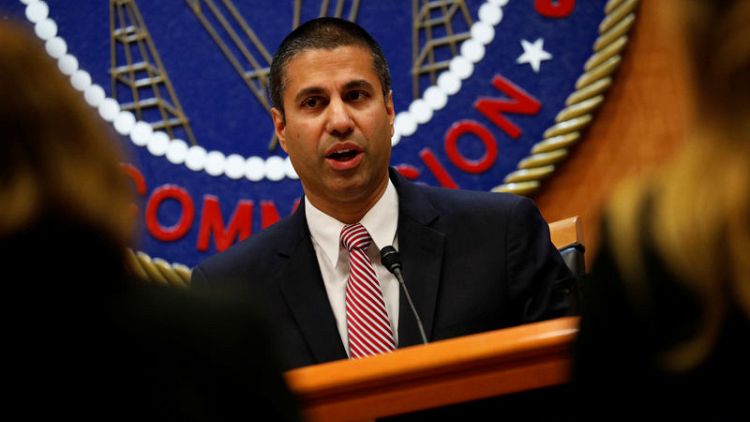By David Shepardson
WASHINGTON (Reuters) - The U.S. Federal Communications Commission said on Wednesday it will vote in November to allow U.S. devices to access the European global navigation satellite system known as Galileo, a move that could improve the services Americans use.
Galileo is a 10-billion-euro ($11.40-billion) satellite programme being developed by the European Union as a rival to the U.S. Global Positioning System (GPS) that launched initial services in late 2016.
FCC Chairman Ajit Pai said in a Wednesday statement that "enabling the Galileo system to work in concert with the U.S. GPS constellation should make GPS more precise, reliable and resilient for American consumers and businesses alike ."
The FCC is proposing to waive its licensing requirements for non-federal operations with Galileo signals known as E1 and E5, subject to certain technical constraints, officials said.
The FCC includes conditions to ensure users of satellite-based positioning, navigation and timing services in the United States will benefit from Galileo signals. The systems are interoperable under a 2004 agreement.
Pai noted that GPS "is integral to numerous everyday applications - ranging from driving directions to precision farming."
The EU has had to rely on Russian or U.S. GPS signals.
Europe in July launched four more Galileo satellites, taking the number in orbit to 26 and moving a step closer to having its own navigation system.
The Galileo system aims to have a total of 30 satellites by 2020. The EU aims to use Galileo to tap into the global market for satellite navigation services, the market for which it estimates will be worth 250 billion euros by 2022.
The EU, which first decided 17 years ago to move ahead with Galileo, has suffered some setbacks - including delays, financing problems and two satellites being put into the wrong orbit.
In August, Britain said it would start work on an alternative satellite system to Galileo.
Pai also said the FCC will vote in November to allow companies, like Tesla Inc <TSLA.O> CEO Elon Musk's SpaceX and TeleSat Canada [PSPENC.UL], to expand the frequencies they can use so "that their fleets of low Earth orbit satellites can offer even better broadband service."
In March, the FCC approved an application by SpaceX to provide broadband services using satellites at home and abroad and previously approved a similar request by Telesat, which is principally owned by Canada’s Public Sector Pension Investment Board and Loral Space & Communications Inc <LORL.O>.
Pai also is proposing the first comprehensive review of the FCC's orbital debris rules since their adoption in 2004 to address the "growing risk" to satellites from the rising amount of space junk.
($1 = 0.8774 euro)
(Reporting by David Shepardson, editing by G Crosse)


